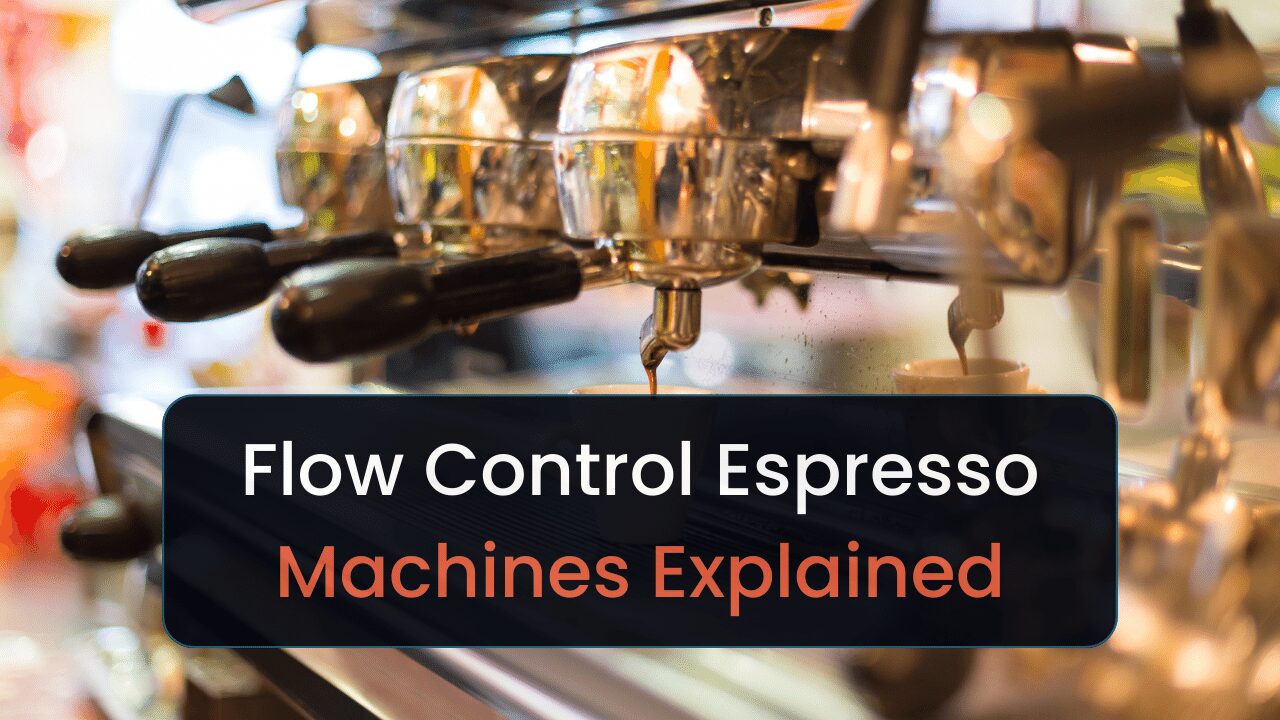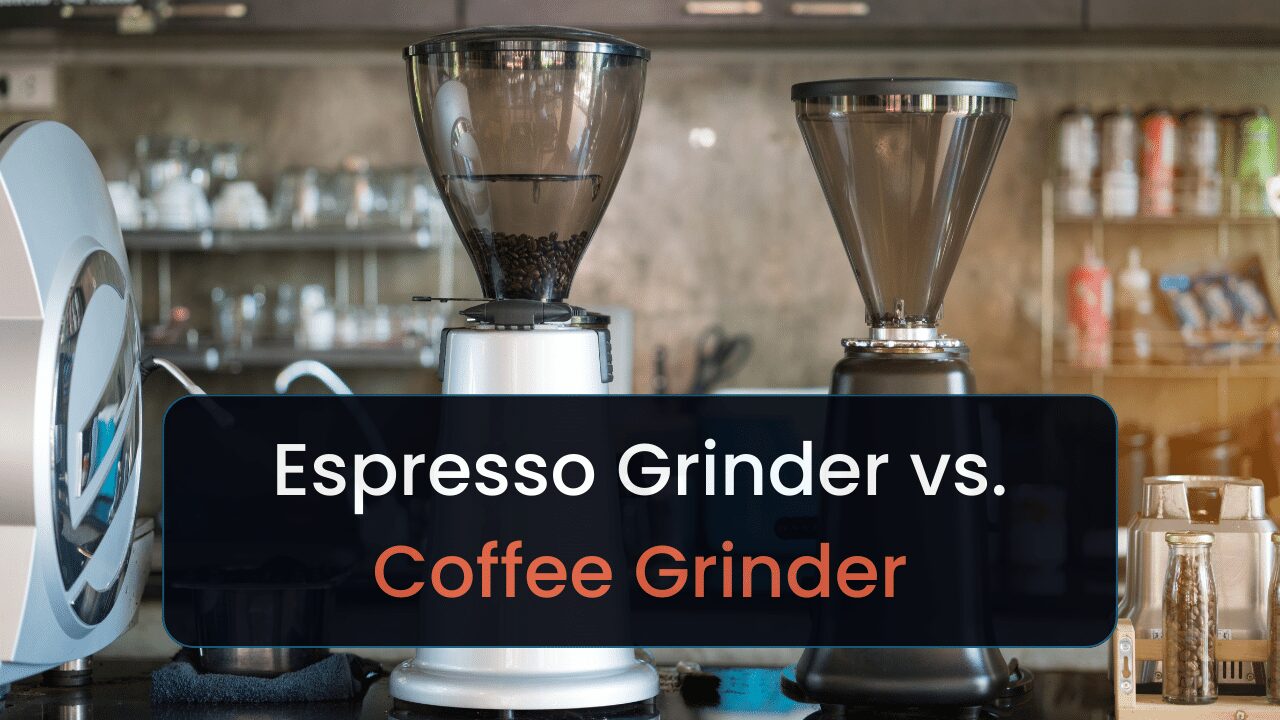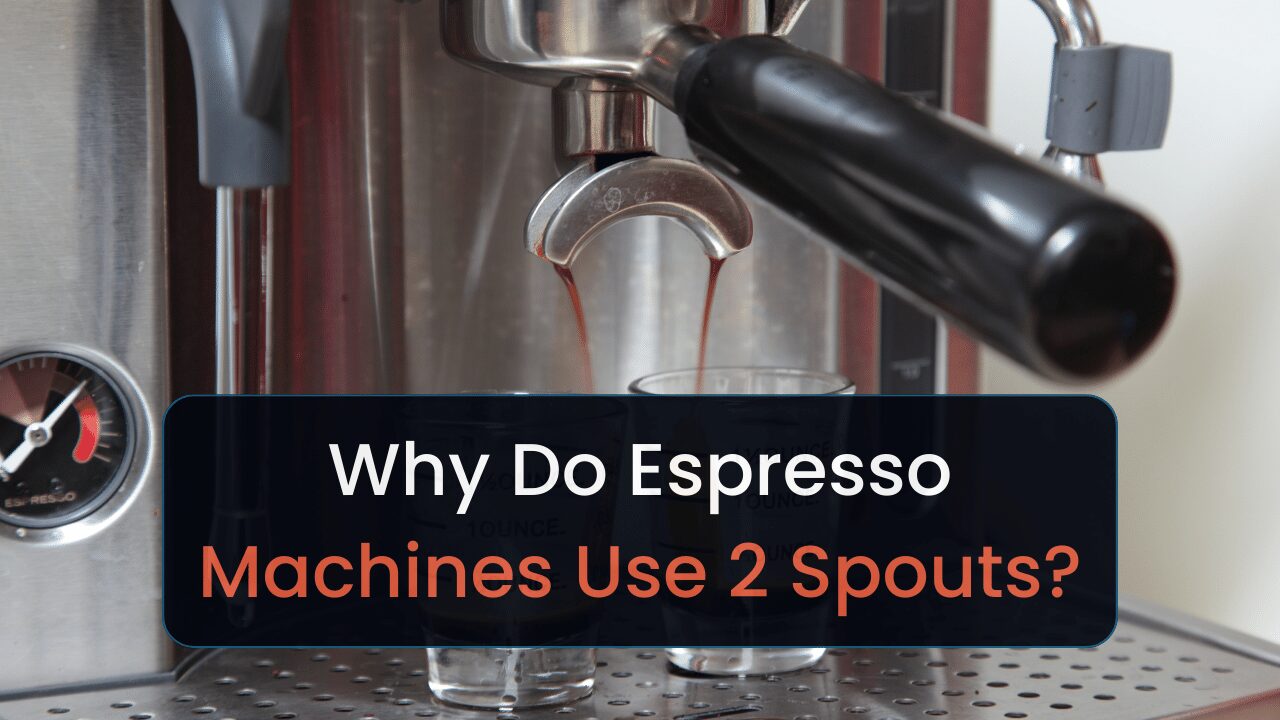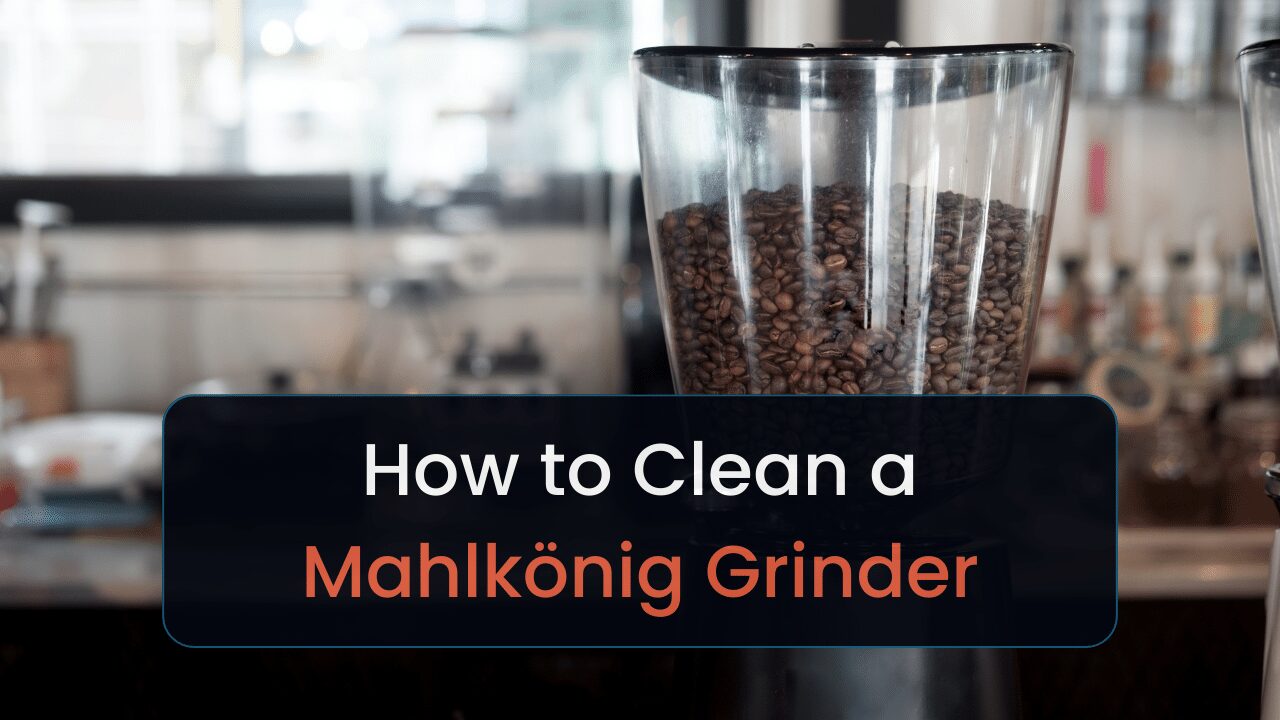As a business owner, I want to understand how long my equipment will last. Businesses that serve coffee will want reliable machines that won’t require frequent replacements. Hence, why I wrote this piece.
I will cover the average lifespan for commercial espresso machines in addition to steps to take to expand its lifespan. In addition, I will talk about what to look out for if it is close to breaking down.
Here is an overview what we will cover:
Read on to learn more.
Key Takeaways
- With proper care, commercial espresso machines can last up to 20 years.
- Quality of your device, level of maintenance, & frequency of use will affect your machine’s lifespan.
- Signs that your machine is about to give include decreased espresso quality and frequent breakdowns.
- Extend your machine’s lifespan with regular maintenance.
How Long Do Commercial Espresso Machines Last?
The typical lifespan for a commercial espresso machine is 6 to 10 years [1]. With proper maintenance, these machines can last up to 20 years. Super-automatic and automatic makers may last around 6 to 10 years because of all the electrical components in these machines.
You might want to use Starbucks as a reference as to how long coffee machines should last. But I could not find any information as to how long their machines last.
How Long Do Self-Service Commercial Espresso Machines Last?
High-quality self-service espresso machines should last up to 6 years with proper care and maintenance [2]. This applies to super-automatic espresso makers that guests would use to make coffee for them automatically.
Factors Affecting the Lifespan of a Commercial Espresso Machine
The following sections will cover various factors that will affect your espresso machine’s lifespan. Understand these factors and take the necessary steps to ensure your machine lasts for as long as it can.
1. Quality of the Machine
A high-quality machine has durable materials and components that can withstand the wear and tear of commercial use. It should not prove difficult to prove and use from team members.
Here are some of the things to look for in a high-quality commercial espresso machine:
- Durable materials: Construction should involve high-quality materials, such as stainless steel & copper.
- Well-made components: Should have well-made components, such as the pump, boiler, & valves.
- Easy to clean & maintain: Should be easy to clean & maintain, with removable parts that can be easily taken apart & cleaned.
- Good warranty: Should come with a good warranty, which will protect you in case of any defects.
By investing in a high-quality commercial espresso machine, ensure that it will last for many years to come.
Here are some additional tips for choosing a high-quality commercial espresso machine:
- Read reviews: Read reviews from other businesses that have purchased the machine.
- This will give you an idea of the machine’s quality & durability.
- Talk to experts: Speak to coffee professionals & espresso machine experts.
- You can call us at +1 (302) 208-9293 and our experts will help you!
- Visit a showroom: See & test the machine in person.
- This will help you get a feel for the machine & make sure that it is the right fit for you.
Frequency of use will also impact your machine’s lifespan.
2. Frequency of Use
Machines used more will wear out more quickly than machines used less frequently. This is because the components of the machine experience more stress and wear and tear.
To extend the lifespan of your commercial espresso machine, use it as much as needed. If you are not using the machine often, store it in a cool, dry place. This will help to prevent the build-up of moisture and bacteria, which can damage the device.
Now maintenance comes into play.
3. Level of Maintenance
A machine that is properly maintained will last longer and produce better espresso than a machine that is not.
Here are some of the key maintenance tasks that you should perform on commercial espresso machine on a regular basis:
- Cleaning: Clean group heads, steam wands, & other parts of the when possible.
- This will help to prevent the build-up of coffee oils & residues, which can damage the machine & affect the taste of the espresso.
- Descaling: Descale on a regular basis, depending on the hardness of the water.
- This will help to remove mineral deposits that can build up & clog the machine.
- Lubrication: Lubricate parts on a regular basis to keep them working smoothly.
- Repairs: Perform repairs promptly to prevent further damage to the machine.
By following these maintenance guidelines, you help to ensure that your commercial espresso machine lasts for many years to come.
How can you tell whether your espresso machine is about to give? Keep reading to learn.
Signs That a Commercial Espresso Machine Is Nearing the End of Its Lifespan
You will find signs that your espresso machine is nearing the end of its lifespan throughout the following sections.
1. Decreased Espresso Quality
As a commercial espresso machine ages, it is natural for the quality of the espresso it produces to decrease. This can be due to a number of factors, including:
- Warped or damaged boiler: It will not be able to heat the water evenly, which can result in inconsistent espresso extraction.
- The boiler is responsible for heating the water used to make espresso.
- Scale buildup: This can impede heat transfer & reduce the efficiency of the machine, leading to poor-quality espresso.
- Scale is a mineral deposit that can build up on the heating elements & other components of the espresso machine.
- Leaking group heads: If the group heads are leaking, it can contaminate the espresso with water, resulting in a weak or watery taste.
- The group heads are the parts of the espresso machine that come into contact with the coffee grounds.
- Worn gaskets: Worn gaskets can allow air to leak into the machine, which can affect the extraction of the espresso.
- Gaskets seal the group heads & other components of the espresso machine.
If you notice any of these signs, it is a good idea to have your commercial espresso machine serviced by a qualified technician. Early intervention can often prevent more serious problems and extend the lifespan of the machine.
2. Frequent Breakdowns
An espresso machine nearing the end of its lifespan will experience frequent breakdowns. This could be due to many factors, such as worn-out parts, leaks, or electrical issues.
If your espresso machine is breaking down more typically than usual, it is a sign that it is time to think about replacing it.
3. Difficulty Maintaining the Machine
As an espresso machine ages, it can become more difficult to maintain. This is due to a number of factors, including:
- Build-up of coffee oils & residues: Can clog the machine & make it difficult to clean.
- Wear & tear on the machine’s components: Can lead to leaks, breakdowns, & other problems.
- Loss of efficiency: Makes it take longer to make espresso & can result in inconsistent results.
If you are experiencing any of these issues with your commercial espresso machine, it is a sign that the device may be nearing the end of its lifespan.
Have the machine regularly serviced by a qualified technician to prevent further damage and extend its lifespan.
How to Extend the Lifespan of a Commercial Espresso Machine
The following sections will cover many tips to consider in order to expand your business espresso machine’s lifespan.
I’ll cover the following areas:
- Regular maintenance: Clean, descale, & inspect machine.
- Use filtered water: Prevents mineral buildup.
- Prevent overuse: Give machine breaks if possible.
Dive in to learn more.
1. Regular Maintenance
Regular maintenance is the best way to extend the lifespan of your commercial espresso machine. This includes cleaning and descaling the device regularly and inspecting it for signs of wear and tear.
1. Cleaning
The frequency of cleaning will depend on the machine’s usage, but it is important to clean the machine after every use if possible. Doing so will help to prevent the build-up of coffee oils and residues, which can clog the machine and impair its performance.
To clean the machine, you will need to:
- Remove the portafilters & group heads.
- Rinse them with hot water.
- Scrub them with a mild soap & water solution.
- Rinse them again with hot water.
- Dry them with a clean cloth.
- You should also clean the drip tray & water reservoir regularly.
2. Descaling
Descaling is the process of removing mineral deposits from the machine. These deposits can build up over time and affect the machine’s performance.
To descale the machine, you will need to use a commercial espresso machine descaler. Follow the instructions on the descaler’s label.
3. Inspection
In addition to cleaning and descaling, you should inspect the machine regularly. This includes checking the hoses, gaskets, and seals for leaks. You should also check the thermostat and other electrical components for damage.
If you notice any problems, have the machine repaired by a qualified technician.
Let’s talk about using filtered water.
2. Use Filtered Water
Hard water, which contains minerals like calcium and magnesium, can build up over time and damage the machine’s components. This can lead to scale buildup, clogging, and malfunction.
Avoid these problems by using filtered water in your espresso machine. Filtered water will remove the minerals that can cause scale buildup and other damage. It will also help to keep your machine clean and working properly.
If you do not have access to filtered water, buy bottled water or install a water filter on your business’ water line.
Additional benefits that come from using filtered water include:
- Helps to extend the lifespan of the machine by preventing scale buildup & other damage.
- Can improve the taste of your espresso by removing impurities from the water.
- Makes cleaning the machine easier.
- Helps to reduce the number of repairs needed.
Here is one more factor that will extend your machine’s lifespan.
3. Avoid Overloading the Machine
One of the best ways to extend the lifespan of your commercial espresso machine is to avoid overloading it. This means not making too many espresso shots at once and not running it for long periods without giving it a break.
When you overload the machine, it can overheat and damage the components. It can also cause the device to malfunction and produce inconsistent espresso.
To avoid overloading your espresso machine, follow these tips:
- Do not make more than 2–3 espresso shots at once.
- Give the machine a break after every 10–15 espresso shots.
- Do not run the machine for more than 8 hours at a time.
- If you are using the machine for a large event, take breaks to let it cool down.
If you are running a business with a lot of foot traffic, this step becomes almost impossible to follow. As you will need your machine to run constantly.
Consider this tip if your workflow allows for it.
The Importance of Maintenance
The following sections will talk about all the factors to consider when it comes to maintenance. Keep reading because these are important for keeping your machine in working order.
1. Descaling
Descaling is the process of removing mineral deposits that build up in the machine over time.
These mineral deposits come from water used to make espresso, and they can cause many problems, including:
- Reduced water flow & pressure
- Impaired temperature control
- Buildup of scale on the heating elements
- Decreased flavor
- Increased risk of machine damage
Prevent these problems by descaling your espresso machine regularly. The frequency of descaling will depend on the hardness of your water, but it’s best to descale your machine every 3–6 months.
2. Cleaning
A well-maintained espresso machine will produce better coffee and last longer.
Espresso machines come into contact with coffee grounds, oils, and other residues. These residues can build up over time and affect the taste of the coffee, as well as the performance of the machine.
You should clean it daily, no matter how many people you serve drinks to.
3. Replacing Parts
Some of the parts that may need replacements on a regular basis include:
- Grinder burrs: Responsible for grinding the coffee beans into a fine powder.
- Over time, the burrs can become dull or damaged, which can affect the taste of the coffee.
- Group heads: Delivers hot water to the coffee grounds [3].
- They can become clogged with coffee oils & residues, which can affect the extraction of the espresso.
- O-rings: Seals that prevent water from leaking from the machine.
- They can become brittle or damaged over time, which can cause leaks.
- Valves: Control the flow of water in the machine.
- They can become worn or damaged over time, which can impact the performance of the machine.
It is important to replace these parts as needed to keep your espresso machine in good working order. By doing so, you ensure that your machine produces consistently high-quality espresso.
FAQs for Commercial Espresso Machines
Keep reading to find frequently asked questions about commercial espresso machines.
What Are Some Brands That Make Commercial Espresso Machines?
Brands that manufacture commercial espresso machines include Breville, La Marzocco, and De’Longhi.
Conclusion
Most commercial espresso machines will last up to 10 years. 20 years depending on the machine you get.
Do you need help choosing a stellar espresso machine for your coffee shop? Read our buyer’s guide.






